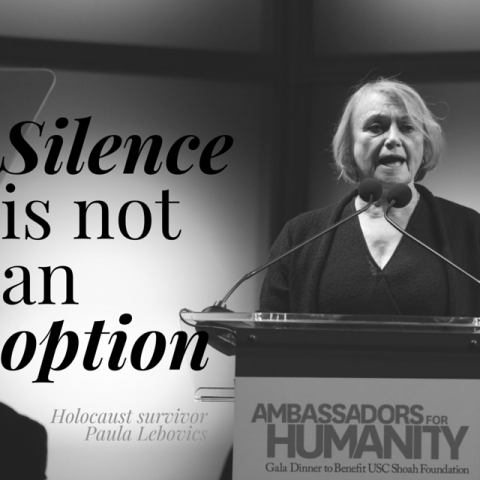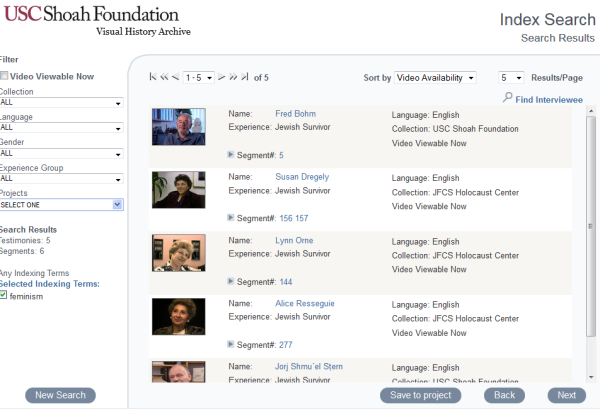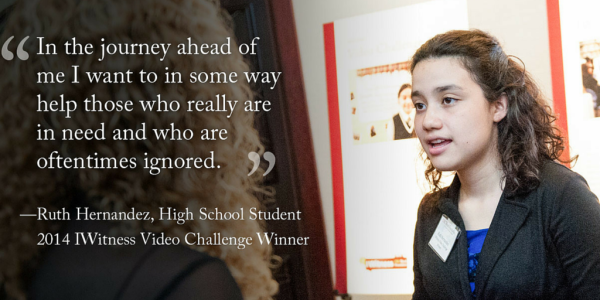Filling in the Silence

The news that day was full of reports highlighting some of those challenges: the implicit and explicit sexism and outright misogyny that seems to be a staple in the American political campaigns on both sides; the epidemic of violence against women, particularly on college campuses; the wage gap – and that was just in the United States. Today is more inhospitable and dangerous for women and girls in other places throughout the world. When I got home, I flipped on the television and wandered into the epilogue of the series Grey’s Anatomy. In it, lead character Meredith Grey, gave voice to many of the very things I had been thinking about:
“In group settings, men are 75 percent more likely to speak up than women and when a woman does speak up, it’s statistically probable that her male counterparts will either interrupt her or speak over her. It’s not because they’re rude. It’s science. The female voice is scientifically proven to be more difficult for a male brain to register. What does this mean? It means in this world where men are bigger, stronger, faster, if you’re not ready to fight, the silence will kill you."
It occurred to me that rather than just be depressed by all of this, as the director of education for USC Shoah Foundation, I might be able to do a little something to contribute to fighting the silence by finding clips of testimony in our educational platform IWitness about women’s strength and empowerment. I was sure that I could find clips that addressed these topics and even spoke of equality for women. In IWitness I typed the word “feminism” into the search box and not only were no clips returned, but no related terms appeared. I know “Feminism” is an indexing term, for testimonies in USC Shoah Foundation’s Visual History Archive, but there were no occurrences in any of the 1,500-plus testimonies in IWitness. I continued my search in the Visual History Archive and found only five testimonies among the 53,000 with the indexing term “feminism.”

Disappointed but not deterred, I continued my search. While I may not have found the term indexed among the testimonies in IWitness, I certainly found a large number of women who speak up and speak out, talking about equality and earning it. Women like Kitty Fischer, Maria Schmidt, Hedy Epstien and Paula Lebovics who remind us that no matter what, silence is not an option in the face of oppression.
These women and thousands of others in the Visual History Archive have filled the silence, made their voices heard. They would perhaps appreciate how Meredith Grey ended her monologue:
“Don’t let fear keep you quiet. You have a voice, so use it. Speak up. Raise your hands. Shout your answers. Make yourself heard. Whatever it takes, just find your voice. And when you do, fill the damn silence.”

Along with acknowledging those women in the Archive who filled the silence, I want to also acknowledge the many young women who are finding and using their voices thanks to connecting with women like Paula or Kitty through their testimonies in IWitness. Young women like Ruth Hernandez 2014 IWitness Video Challenge Winner, who used her voice to demand immigration reform; Charlotte Masters, a USC Shoah Foundation Junior Intern who organized presentations for Holocaust survivors to speak at schools, introducing survivors’ stories to more than 800 students; Lucia Wiedeman and Ana Haskell, who used their voices to contribute to a virtual field experience with Discovery Education and USC Shoah Foundation that reached more than half a million students around the world sharing the message that silence is not an option.
These young women are filling the damn silence.
I hope that everyone takes a moment on March 8 to listen to all of these voices and to consider using their own to make the world a safer and more equitable place for girls and women. And by the time International Women’s Day roles around next year, there will be testimonies in IWitness that talk about feminism.